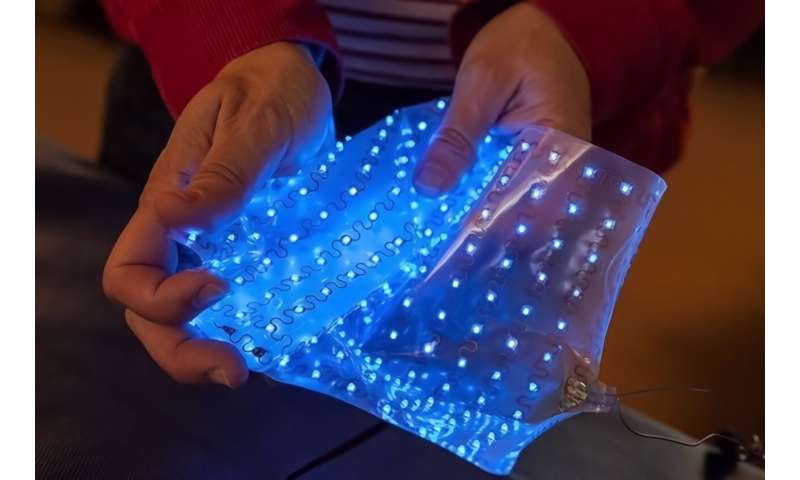Smart Textile technology part of curriculum at Sharjah University's Fine Arts and Design College

Smart fabric and textile technologies have been integrated into the design courses at the University of Sharjah's College of Fine Arts and Design (CFAD).
Students have started studying smart textile technology to augment an existing course titled "Textile for Interiors". It comes as CFAD is striving to rise to the challenges posed by new technologies such as Artificial Intelligence (AI) and the Internet of Things (IoA) that are transforming tertiary level curricula.
Supplementing the course with smart textile technological techniques is the brainchild of Dr. Ayman Fathy Ashor. Introducing AI into the curriculum is the outcome of CFAD's plans to combine traditional art and design principles with innovative AI-powered tools and smart textile technology.
"The art and design industry will benefit from a new generation of professionals who are well-versed in AI and smart textile technologies, leading to new applications and innovations," says Dr. Ashour, an Associate Professor at CFAD.
There is a surge in demand for smart apparel and textiles across the world. According to market reports, the smart textile market size hit $3.8 billion in 2022, and is forecast to reach 15.90 billion by 2028.

Dr. Ashour's aim is to "provide students with the knowledge and skills necessary to succeed in a rapidly evolving industry where AI and smart textiles are becoming increasingly important."
AI is drastically transforming the once labor-intensive apparel and textile industry. In fact, AI is reshaping and revolutionizing the entire production process as well as business and marketing models of textile manufacturing.
The AI-enhanced course comes at the right time for CFAD's students. Adding AI-driven tools to the curriculum is bound to revolutionize design education, according to Dr. Ashour, who hopes supplementing teaching with cutting-edge technologies will enhance students' creative skills and develop critical thinking and problem-solving abilities.
AI tools shall not replace design methods and theories that are commonly taught at fine art and design schools, but they will enable students to think beyond reliance on traditional materials and techniques, adds Dr. Ashour.

Manufacturers' shift to smart technologies is churning out fabrics and textiles with the ability to interact with the environment, and with other AI devices, says Dr. Ashour, adding that the world is on path to adopt apparel that can communicate and sense and link up with microprocessors, sensor, circuits, and actuators.
The AI-augmented course content will assist students to lean on smart technologies to provide insights that can enhance their practice and theory, magnify their capabilities, and prepare them for employment in a textile market that will soon become almost solely AI-dependent, says Dr. Ashour.
The value of human creativity in arts and design will be preserved when teaching the AI-boosted course, emphasizes Dr. Ashour, noting that the course syllabus strikes a balance between incorporating smart technologies and the importance of enabling students to develop creative and critical minds.
"Encouraging students to question and reflect on the ethical implications of using AI in their work will ensure the responsible and sustainable growth of the art and design industry," he says.

The course currently enhance with AI is certain to enable students to "become more versatile, innovative, and well-rounded artists and designers," he notes.
Smart fabric is turning into standard uniform for different professions including the military. It uses electrically conducted yarn, furnishing soldiers' uniforms, for instance, with power instead of the cumbersome batteries they used to carry.
New smart fabric products are believed to replace traditional clothing in the future, and the CFAD course will train students to meet post-graduation challenges as they seek employment in industries and establishments where AI production tools dominate.
Provided by University of Sharjah